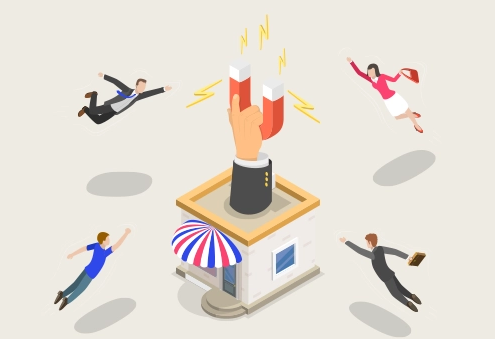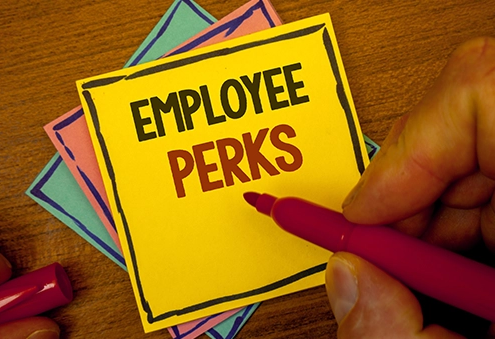Why incentives are key to brand loyalty
Why incentives are key to brand loyalty
After two years of COVID turmoil businesses across the UK are now grappling with the cost of living crisis that is ushering in a period of extreme caution among customers.
With inflation at a 40-year high, consumer confidence is falling rapidly. Even if people have money in the form of savings they are now more reluctant to spend. They fear soaring prices for energy and food will put the squeeze on their spending capacity for the foreseeable future.
GfK’s latest Consumer Confidence Index reported confidence was now at an historic low. Data based on interviews with 2,000 adults in July showed the worsening economic situation was “darkening the mood” of the nation.
This fear and caution is mirrored in the B2B market where businesses are being much careful about their spending with other businesses. An index from NatWest looking at business activity across the UK recorded the lowest reading in six months in July.
Retailers are facing a more permanent shift in market dynamics. A move away from high street shops to e-commerce during the pandemic has swung back the other way. E-commerce market share peaked at 37.4% in February 2020 but has now fallen back to 25.3%.
However, research published by global professional services firm, Alvarez & Marsal, reveals an estimated 17.2m UK consumers plan to make permanent changes to the way they shop.
Whether your customers are consumers, or other businesses, the message is clear: you are now in a fiercely competitive trading environment.
People and businesses will still have to spend money, of course, but now more than ever they are looking for that extra bit of value. Extra incentives can make all the difference when decisions about major supply contracts are made.
Putting together the right package
So in this tougher period what can brands do to keep people and other businesses coming back and spending? What is the key to customer loyalty?
Economists across the world swear by the same four-word phrase – ‘people respond to incentives’. Some are more obvious than others. Offering the right product, available quickly, and at the right price is one of the basics.
What must also be remembered is that all buying – online or on the high street, personal or business – is an experience. Make the experience a frustrating or unpleasant one and people will take their business literally, and virtually, across the street.
Social media has put more pressure on brands to deliver both the product/service and the experience. Pity the poor souls in charge of the big brand Twitter accounts when the ‘my nan is 85 and you have treated her appallingly’ tweets arrive on their timelines.
So let’s say you have got the basics right. The stuff is all in stock, the price is low or competitive, smiling staff are ready and eager to cater for the customers’ every whim. If that is the baseline what extra value can you offer over and above?
What do the customers tell us?
Love2shop is working with businesses across a whole range of sectors to help them improve customer engagement and, in turn, retain customers in a challenging environment. Love2shop offer a number of solutions that will incentivise customers to keep coming back time and time again.
In a major survey carried out by Love2shop, 13,000 people were asked about what they thought were the best rewards when it came to brand loyalty or moving to a new supplier. The results were no surprise. They revealed people love choice and they love gift cards.
It ran two polls across two months asking people to pick their ideal loyalty prize, and their ideal sign-up gift from a selection of popular rewards. Both showed a big preference for multi-retailer gift cards and discounts, with the former by far the most popular.
In fact, a whopping 76.6% of respondents said it was their favourite option. This was followed by 13% for discount on their next purchase with VIP experiences, upgraded memberships and merchandise all scoring in single digits. Read more about the poll on the original blog.
This explains the popularity of the Love2shop rewards and the Love2shop Engagement Platform offered by Love2shop to reward and incentivise both staff and customers.
Love2shop rewards can be used in around 150 retailers, including well-known brands such as Marks & Spencer, Wilko, Iceland, Matalan, Argos, Costa, Harvester, Tui and Jet2Holidays and many, many more.
For customers or employees, Love2shop rewards can offer a treat, or it can be invaluable for life’s essentials such as food and even school uniforms. When money is tight it can make all the difference to people.
Hard data shows incentives do work
Brakes is the UK’s number one wholesaler to the hospitality trade. It also offers food delivery services direct to consumers. In 2021 it forged what proved to be a hugely successful partnership with Love2shop.
Utilising both the expertise of the Love2shop team and the engagement platform technology, the Brakes ‘Help for Hospitality’ campaign was created and launched. The reward programme, delivered through the platform, offered Brakes customers a blend of discounts, cashback, charitable opportunities and Love2shop rewards.
Added to that, Love2shop provided strategic, technical, creative, and software support for the campaign. Love2shop provided the software to deliver cashback and also the Love2shop rewards to Brakes customers.
At that time, the UK was still only slowly emerging from the final pandemic lockdown. In this context the outcome of the collaboration was spectacular. It delivered what was described as “exceptional” growth.
During the five months of this specific campaign Brakes reported that 7.5% of sales came from new categories and products. Additionally, 20% of Brakes customers engaged in the Help for Hospitality. It generated more than 60% of Brakes’ sales revenue during the promoted period.
Help for Hospitality’s success was recognised when it picked up Best Channel Partner Programme at the 2021 Incentive Awards. This annual event recognises excellence in the reward, incentive, and loyalty industry.
Adam Heywood, Head of Commercial Marketing at Brakes, said: “The Love2shop team did a phenomenal job with the Help for Hospitality campaign.
“We’re incredibly proud to see that valuable work recognised by the Incentive Awards. I’d like to congratulate both our team here at Brakes and thank Love2shop for all their support.”
People do indeed ‘respond to incentives’. The data on that is irresistible. It is food for thought for those businesses selling directly to the public and those trading with other businesses. Increasingly, offering extra value to your customers is no longer just optional.
If you can see how Love2shop reward and recognition products could help your business, contact our business team today. Email [email protected] or call 0344 375 0739.




 Building and timber supplier, Buildbase, is successfully rolling out a customer loyalty pr
Building and timber supplier, Buildbase, is successfully rolling out a customer loyalty pr